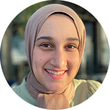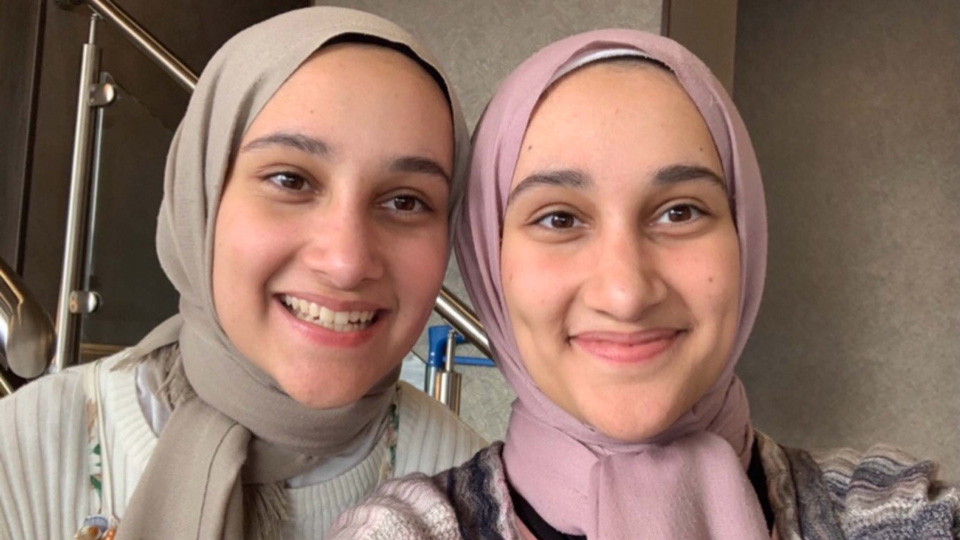- OT
- Life in practice
- Career development
- “This is something I would want to do for the rest of my career”
Students in...
“This is something I would want to do for the rest of my career”
Final-year optometry student, Huda Hathaf, told OT how volunteering at Maggie’s Club has reinforced her career aspirations


Huda Hathaf
24 October 2022
Meet the student
University: Cardiff University
Year of study: Final year
Why I want to become an optometrist: Through optometry I saw what a difference you can make to society, and the importance of helping those who are vulnerable.
Before deciding on optometry as a future career, I had always considered exploring a profession that involved assisting those with special needs. The idea that you can encourage individuals and give them the self-confidence to develop their strengths and passions appeals greatly to me. The opportunity to volunteer at Maggie’s Club arose only a few weeks into my first year at Cardiff University. Maggie’s Club is a collaboration between UCAN Productions and Cardiff School of Optometry, with confidence-building workshops provided for children who are blind, visually impaired, have Down syndrome and other associated disabilities. It provides a safe space for children to have fun and make new friends.
Maggie’s Club is named in honour of Dr Margaret Woodhouse, with many of Maggie’s patients who attend the special assessment clinic at Cardiff University also participating in the club along with their families and carers. The experience involves participating in warm-up activities, an art and sound workshop and circus activities, such as juggling and plate spinning. However, due to COVID-19, the sessions moved to Zoom. Although there was initial uncertainty regarding how the children would react to activities switching from in-person to online, it has been a positive experience. It was evident that many of the children have felt more confident and open to talking to others in the comfort of their homes. Those who may have had a hard time saying their name out loud in a large group were now having so much fun singing and dancing at online events.

Going into this experience, I initially thought that the majority of children would be more reserved and apprehensive. Instead, many were open and loved seeing new faces and learning new names. They were all so welcoming. It was wonderful to have them teach me how to juggle or draw their favourite characters. It was surprising finding out that many of them have been going to Maggie’s Club for almost ten years. It clearly shows how much of an impact and positive experience this provides for the children as something they look forward to. Since COVID-19, it has been great that many individuals who lived too far away and perhaps couldn’t attend the in-person meetings were able to take part in online sessions.
Taking part in numerous activities with the children and seeing the joy in their faces has been an experience I will never forget. I found that asking the children about their interests helps greatly in understanding what they are most passionate about. There was an instance when a child was hesitant and reluctant in joining the games. After striking up a conversation, I found that they loved rugby. Having the next hour playing with a rugby ball, where with each throw the child would tell me an interesting fact about the sport, left me with a sense of joy and accomplishment. It’s vital to take into consideration that extra care and patience are required, especially when introducing any new games or activities, since many of the children suffer from impaired vision.
It would be so beneficial if students experienced a wide range of optometry settings such as, domiciliary, hospital, in-store, paediatric, and special needs. It helps determine the type of optometrist you’d like to become
This experience has made me want to specialise in the special assessment sector and has made me aware of the many routes optometry can take you. Research has shown that many children with special needs have undiagnosed vision problems. It’s vital to emphasise the importance of bringing individuals with special needs to have their eyes tested as they have a greater incidence of visual problems.
It would be so beneficial if students experienced a wide range of optometry settings such as, domiciliary, hospital, in-store, paediatric, and special needs. It helps determine the type of optometrist you’d like to become. Through this, you’ll quickly find your passion. Students need to meet these young people, as they will become our future patients. Success as future optometrists can only be dependent on good interactions, and gaining experience in many areas of optometry ensures good connections can be made. This can broaden and improve the patient experience you provide in the future. It will enable you to deliver better patient outcomes where qualities such as resilience, responsibility and commitment are enhanced.
Being able to witness the joy and happiness on each child’s face after improving their vision is an aspiration of mine
I know that working in this area will be a worthwhile goal. Being able to witness the joy and happiness on each child’s face after improving their vision is an aspiration of mine. It makes you feel good knowing you have made a difference in the lives of children and their families.
This is something I would want to do for the rest of my career. Volunteering at the club brightens my day. Giving back to the community is so vital. Moreover, being able to build a child’s self-confidence has given me the ability to teach and communicate information in a way that is understandable to others – a skill that is needed for future optometrists.

Comments (0)
You must be logged in to join the discussion. Log in